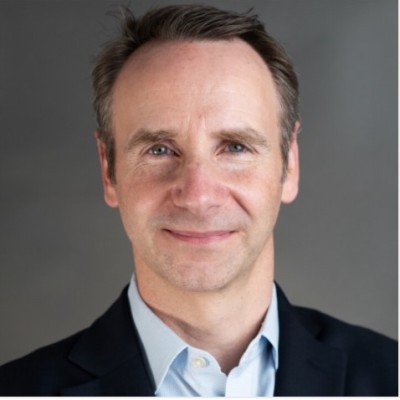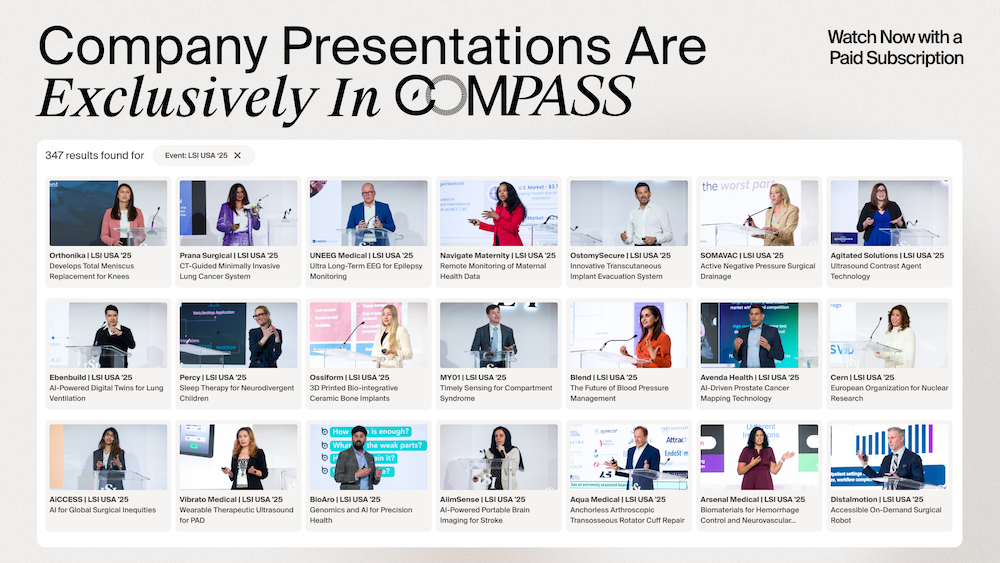- Video Library
- Patrick Anquetil, Portal Instruments - Needle-Free Biologics Delivery | LSI USA '24
Patrick Anquetil, Portal Instruments - Needle-Free Biologics Delivery | LSI USA '24
shaping the future of
Medtech at LSI USA ‘26
Waldorf Astoria, Monarch Beach

Patrick Anquetil
As the Founder and CEO of Portal Instruments, Patrick Anquetil, Ph.D., MBA, leads a team of engineers, scientists, and business professionals who are developing a connected needle-free drug delivery device that improves the patient experience and adherence of injectable therapies. With over 15 years of experience in the medtech and biotech industries, Patrick has a passion for creating innovative solutions that address unmet medical needs and enhance patient outcomes.
Patrick has successfully established strategic partnerships with leading pharmaceutical companies, such as Takeda, LEO Pharma, and Sanofi, to launch combination products with Portal's needle-free technology. He has also raised over $60 million in venture capital and non-dilutive funding to support Portal's growth and development. Prior to founding Portal, Patrick co-founded SynapDx, an autism diagnostic company, and Aretais, a blood glucose monitoring venture. He also worked as a science and nanotechnology equity research analyst at Susquehanna International Group. Patrick holds a doctorate in bio-instrumentation from MIT, an MBA from Harvard Business School, and a master's degree from ETH Zurich and the University of Tokyo. He has published his scientific work in peer-reviewed journals and mainstream media, and has been featured in MIT Technology Review, Wired Magazine, PBS, and CNBC.
Patrick Anquetil
As the Founder and CEO of Portal Instruments, Patrick Anquetil, Ph.D., MBA, leads a team of engineers, scientists, and business professionals who are developing a connected needle-free drug delivery device that improves the patient experience and adherence of injectable therapies. With over 15 years of experience in the medtech and biotech industries, Patrick has a passion for creating innovative solutions that address unmet medical needs and enhance patient outcomes.
Patrick has successfully established strategic partnerships with leading pharmaceutical companies, such as Takeda, LEO Pharma, and Sanofi, to launch combination products with Portal's needle-free technology. He has also raised over $60 million in venture capital and non-dilutive funding to support Portal's growth and development. Prior to founding Portal, Patrick co-founded SynapDx, an autism diagnostic company, and Aretais, a blood glucose monitoring venture. He also worked as a science and nanotechnology equity research analyst at Susquehanna International Group. Patrick holds a doctorate in bio-instrumentation from MIT, an MBA from Harvard Business School, and a master's degree from ETH Zurich and the University of Tokyo. He has published his scientific work in peer-reviewed journals and mainstream media, and has been featured in MIT Technology Review, Wired Magazine, PBS, and CNBC.

17011 Beach Blvd, Suite 500 Huntington Beach, CA 92647
714-847-3540© 2026 Life Science Intelligence, Inc., All Rights Reserved. | Privacy Policy







